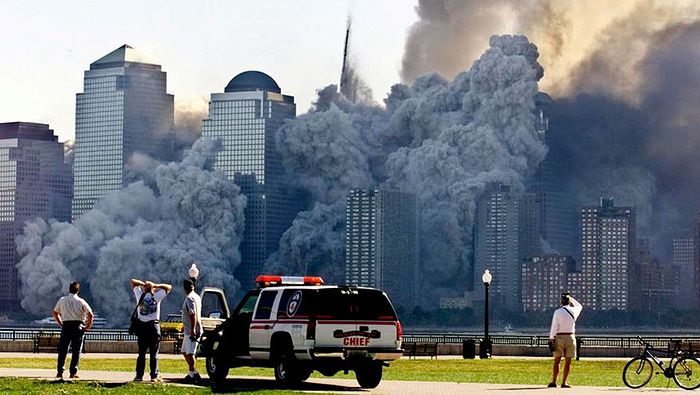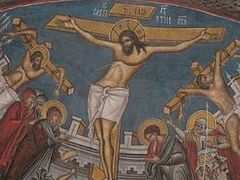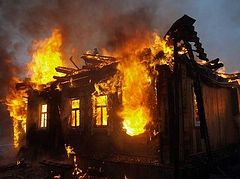And he awoke and rebuked the wind, and said to the sea, “Peace! Be still!” And the wind ceased, and there was a great calm.
Mark 4:39
And his disciples came to him, saying, “Explain to us the parable of the weeds of the field.” He answered, “He who sows the good seed is the Son of man; the field is the world, and the good seed means the sons of the kingdom; the weeds are the sons of the evil one, and the enemy who sowed them is the devil.
Matthew 13.36-39
Our world is at war. Reflecting on the September 11, 2001 atrocities of 18-years ago, they were but another manifestation of the cosmic conflict—the combat zone—in which we live. When the attacks of September 11 occurred, some misguided commentators said the events were part of God’s divine plan. These same commentators would also have us believe that when disease or harm befalls someone, it is within God’s plan. Do not listen to anyone who tells you such a thing.
Why did the September 2001 and subsequent atrocities occur? To answer this question, we must understand the world and its reality.
Let us look at Holy Scripture. The cosmic war in the Old Testament is depicted as an unyielding nature to God’s will. The sea in the Old Testament is often portrayed as hostile waters and a sinister force challenging God and His creation. It is against this unyielding nature that God’s power and rebuke cause hostile waters to flee (Ps 104.7, 77.16). God in setting forth boundaries for the hostile waters (Ps 104.9; Prov 8.27-29; cf. Job 38.6-11) protects His creation as He sits above “the mighty waters” (Ps 29.3-4, 10).
But in the Old Testament, it is more than nature that is rebelling against God. Monsters are challenging His authority. The many-headed Leviathan (Ps 74.14) capable of breathing fire (Job 41.18-21) and eating iron and bronze (Job 41.26-27) could, without God’s intervention, consume man (Ps 74.13-14). The prophet Isaiah looked forward to the day God would crush the Leviathan.
“In that day, the LORD with his hard and great and strong sword will punish Leviathan the fleeing serpent, Leviathan the twisting serpent, and he will slay the dragon that is in the sea. (Isaiah 27.1).”
The Rahab is, in the Old Testament, seen as a creature challenging God. Living in the waters encircling the earth, it, too, would be defeated by God (Job 26.12-13; Ps 89.9-10). Again it was Isaiah who reminded the people that as God had crushed Rahab, He would deliver Israel (Is 51.9).
In the Old Testament, Satan is rarely mentioned; he is, nevertheless, present. Satan was present at man’s fall (Gen 3) as a serpent. It was through him that “death entered the world” (Wis 2.24), Saul and Job were tormented (1 Sam 18.10 and the Book of Job, respectively), and Joshua was accused (Zech 3.1-2).
In other words, because of an unyielding and evil nature and Satan, the Old Testament authors did not assume things always heeded God’s plan. God today, as in the Old Testament, endures consistent assaults on His authority.
This warfare theme continues and is more developed within the New Testament. It is in the midst of the great cosmic war that the Son of God enters our lives as our Saviour.
The big difference between the Old and New Testaments is that instead of dragons, serpents, raging waters, and oblique references to Satan, Jesus specifically refers to Satan as the “ruler of this world” (Jn 12.31, 14.30, 16.11). He is the cause of all the evils we endure. The Holy Apostles John and Paul also confirm that Satan is the power of this world (1 Jn 5.19; 2 Cor 4.4).
Jesus, while acknowledging the evil princehood of Satan and his legion of followers (Mt 9.34, 25.41), tells us that we, too, must battle Satan (Mk 3.27). Because this world, rightfully, belongs to its Creator, we, as Jesus did, must fight to give it back to the Father. This is what Jesus was doing when He was teaching, exorcising demons, and healing the ill. By His death and resurrection, Jesus was attaining a victory over Satan and his legions by defeating the very end that Satan had brought to man.
The incarnation of the Son of God served to reclaim the earth for the Father by establishing His Holy Church. The presence of the Holy Spirit within the Holy Church—the Orthodox Church—established God’s kingdom on earth as a direct challenge to the “ruler of this world.”
Recall when Jesus taught the apostles to pray that God’s “will be done on earth as it is in heaven” (Mt 6.10), it presupposed that God’s will is not being done on earth! And it is not. Therefore, when people die or are suffering from a disease or filled with a demon, they are casualties of war—the great cosmic war surrounding us. Therefore, the atrocities of September 11 and since do not serve a divine purpose. We truly live in a combat zone. God does not will ill for humanity. Indeed, there is no scriptural or patristic teaching that God ordains or promotes evil or advances divisiveness within His Church. God is only good. And this is why the Son of God “went about doing good and healing all who were oppressed by the devil” (Act 10.38). Jesus’ acts of healing were acts against satanic oppression.
The early Church Fathers sustain the warfare perspective in Holy Scripture. Justin Martyr refers to “the care of men and of all things under heaven to angels whom He [God] appointed over them” and angels who transgressed against God (2 Apology 5). The concept that angels would “exercise providence for God over the things created and ordered by Him” was similarly echoed by Athenagoras (A Plea for the Christians) and reinforced by Origen (Against Celsus). Therefore, if nature—the things of the earth—and man are hostile to God, it is because of the misguided and hostile free will of the fallen angels. Tatian wrote that while only God is “the nature of good,” man and the angels have a perfected “freedom of choice” (Address to the Greeks). Misuse of free will by both man and angels has resulted in a great rebellion with tragic circumstances.
One might ask if Christ’s death and resurrection defeated Satan, why then is the earth still oppressed? The answer is that Satan has not yielded. Even after establishing His Holy Church, God continued and continues to encounter resistance. Again, why? Irenaeus gave the best possible response, “there is no coercion with God” (Against Heresies 5.37). God provides us with the responsibility to determine our destiny. Many a man—and a fallen angel—has opted to rebel against God. The result is war. Only a God, whose love is unbounded and uncompromising, would willingly accept rejection by some, knowing well that there will also be responding love by others. We need only live our Orthodox faith understanding that He will not fail us as we participate in this cosmic war—as His warriors—by merely loving Him.
In this war, God is our champion. That is, He is our champion if we are allied with Him.
Remember, this war will not last forever. And when it ends, God’s victory will be fully evident. And many a man will lose.





